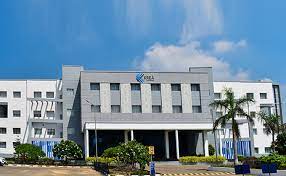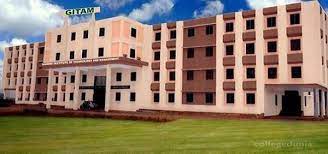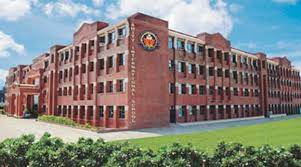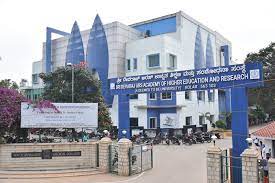The research portion of a Ph.D. in biophysics consists of three seven-week rotations through the laboratories of three faculty members. At the end of each rotation, students are required to make a short presentation to the whole group and report on their progress to a three-person mentoring committee. The doctoral degree is completed after passing a qualifying exam, submitting a candidacy research paper, presenting the results to the program director, and successfully defending a dissertation.
The first three years of a Ph.D. in biophysics require the completion of a master's degree in another field. Many Ph.D. programs require students to have experience as teaching assistants. This experience is considered essential to graduate study. The Biophysics Program requires that all biophysics students work as teaching assistants for one semester as graduate students. The graduate program also requires all Biophysics students to become faculty members for at least one full-time position.
The curriculum for a Ph.D. in biophysics varies. Most courses require a candidate to spend at least two years of research experience in a university. To become a faculty member, students must have several years of teaching experience. A good teaching assistant will be responsible for helping students learn the skills necessary to teach. A master's degree in biophysics is one of the best ways to gain valuable experience in the field.
Ph.D. in Biophysics Eligibility
Candidates who want to take admission in Ph.D. must have a post-graduate degree in Biophysics and its relevant discipline with at least 55% marks from a recognized university and must have passed the national level entrance examination or university level entrance examination. National level entrance exams like UGC NET / UGC CSIR NET / GATE / SLET or University entrance exams consist of written tests and personal interviews.
The Benefits of a Ph.D. in Biophysics
A Ph.D. in Biophysics can be a great option for many people. It is a field with great potential for industry collaboration. Students with a background in biophysics are often well suited to make the transition into industry. Some subfields include pharmaceuticals, health care, genomics, and medical chemistry. Graduate schools should educate their graduate students about these opportunities before they begin their program.
The IDP in Biophysics trains students to understand biological systems by applying the powerful tools of the physical sciences to life science. These students will be well-rounded and will be able to integrate their knowledge of biology and chemistry into basic biomedical research. In addition, this degree is very versatile and can be used for many different careers. A Ph.D. in Biophysics is the ideal choice for those who are interested in working in academia, biomedicine, or health policy.
A Ph.D. in Biophysics can open up countless career opportunities. From academia to big biotechnology companies, Ph.D. graduates are equipped to find exciting and high-paying careers in a broad range of fields. Regardless of their interests, a biophysics degree can provide a diverse and satisfying career path. The field is extremely quantitative and interdisciplinary, and there are many opportunities to explore.
Career and Job Opportunities of a Ph.D. in Biophysics
A Ph.D. in Biophysics can open a variety of career opportunities. In industry, biophysicists can work as research fellows. They are not awarded university credit for their work but are expected to perform the same level of research as a normal Ph.D. candidate. A doctorate in biophysics can also be a great option for those with an MD. If you have a medical degree, it is possible to get a Ph.D. in biophysics.
This is a good choice if you want to work for a private company or in a research lab. In the UK, the average salary is $72,000. In the United States, the number of applicants to medical schools is nearly 21,000, while there are just 650 Ph.D. programs. This means that biophysics is not one of the most popular careers among medical students, but it is a strong field for those with a solid math background.
If you have a strong mathematics background, you may want to consider a career in biophysics. The field is growing in popularity, but only a handful of people go into it. In the US, for instance, over 21,000 students applied to medical schools. Only 650 were accepted into Ph.D. programs. Those who have obtained their PhDs will have a higher chance of getting a job in the medical field.
The Future Scope of a Ph.D. in Biophysics
Applied biophysicists work on applied research projects. They use their knowledge of physics to investigate the effects of substances on biological processes. Researchers work in various institutes to study biophysical aspects of biomolecules and drugs. They try to improve the effects of drugs by altering the way they work. Professors teach the students the techniques used in the field. The future of biophysics is very bright!
The future scope of a Ph.D. in Biophysics is bright. The field has a strong demand in the public and private sectors. Some scientists have referred to biophysics as the science of the future. According to a study conducted by the National Academy of Sciences, the job prospects of a Ph.D. Biophysicists will grow by 11% from the year 2018 to 2028 compared to other fields. As of 2018, the starting salary of a Biophysics graduate ranges from INR 4,00,000 to INR 6,00,000. Graduates with 5 years of experience get around INR 4 LPA.
The future scope of a Ph.D. in Biophysics depends on the candidate's research interests and career aspirations. In the field, the Ph.D. holder will be qualified for a high-level position in a research lab, or in a biotech company. The candidate should have good writing skills, problem-solving capabilities, and the ability to manage multiple projects simultaneously. A Ph.D. in Biophysics is also desirable if you're looking to break into a senior position.
Ph.D. Research Programme duration
The Ph.D. in Biophysics course is a minimum of 3 years and a maximum of 5 duration. This depends on the university offering the course.
Fees for research program for Biophysics
The average fee for Ph.D. in Biophysics degree is between INR 50000 and INR 500000.
 5 Years
5 Years
 PhD
PhD
 Research
Research

































 back
back